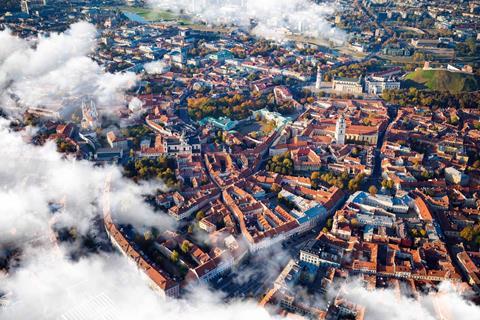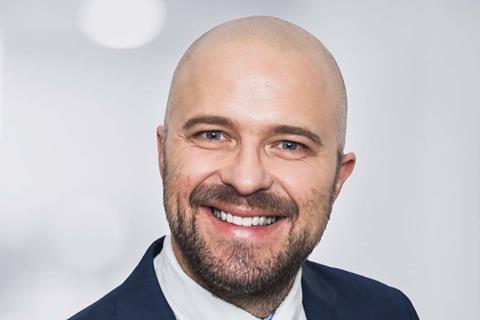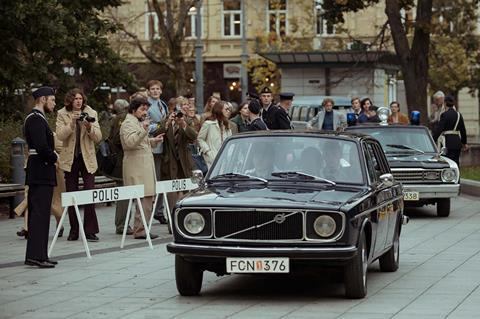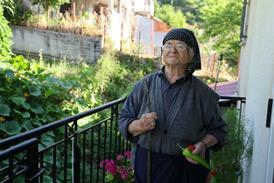
The Baltic country of Lithuania has bold ambitions to create an “industry city” comprising a virtual production studio, post-production labs and VFX desks, alongside virtual reality, extended reality and metaverse creation spaces. The aim is to make the country a state-of-the-art destination for the international industry.
Spearheaded by the Baltic Film and Creative Tech Cluster (BFCTC), a private association consisting of 50 core and 70 associate member companies, the plan is to future-proof the country’s audiovisual sector.

“Our main focus is to develop a state-of-the-art working infrastructure and desirable educational programmes to attract young people into the industry to meet the future demands of the global industry,” says BFCTC chief executive officer Romanas Matulis.
Full plans will be revealed within the next few months, but the hub will be situated in or near the capital Vilnius. “We’re not talking about a classic film studio; it is more an industry city within a modern infrastructure,” Matulis explains. “We are orienting and focusing plans on the future and the future trends.”
Overcoming challenges
The impetus to grow the industry in Lithuania comes as it emerges from pandemic limitations and the concerns around safety following Russia’s invasion of Ukraine. “The past three years have been a huge challenge for the Lithuanian industry,” acknowledges Matulis. “But we have proved we’re able to adapt to challenging conditions. During the pandemic when the whole world came to a standstill in lockdown, we continued filming.”
The European Union member state put in place strict personnel controls to maintain shooting, with tests every day, sometimes every hour, ensuring crew safety.
“The next big challenge was the breakout of war in Ukraine, when many foreign producers were hesitant about if it was safe to work in our country,” Matulis says. “Because we are a Nato country, it is as safe as any other member of Nato to work here.”

Situated in northeast Europe along the southeast shore of the Baltic Sea, Lithuania’s unique locations and good financial incentives have helped to build its reputation as a filming destination. Netflix’s Stranger Things and Clark, BBC’s War & Peace, and HBO/Sky’s Chernobyl and Catherine The Great all shot in Lithuania. Most recently, Vilnius hosted Boris Kunz’s Paradise, a romance film for Netflix, produced by German outfit Neuesuper, that shot in the summer of 2022. Ahil Films was the local partner with support from the Vilnius Film Office.
“It was good to be back working in Vilnius,” says the film’s line producer Stephan Barth. “It has always been a production-friendly city and you know production goes smoothly. It’s a futuristic story and we’re happy with what Vilnius offers.”
The Vilnius Film Office worked to ensure a smooth permit process and provide crew.
The city often doubles for other locations — it stood in for Sweden in SF Studios’ drama series Evil, which also shot in 2022. “Vilnius is a multicultural city with a rich history reflected in the architecture of all eras,” says Matulis. “We have a lot of buildings dating back to the 15th and 16th century as well as the Brutalist Soviet-era buildings.”
Lithuania offers a 30% tax incentive for local spend on feature films, TV series, documentaries and animation. International productions must spend at least $46,500 (€43,000) and incur at least 80% of eligible production costs in Lithuania, as well as work with a local co-producer.
“Our crews are professional and they have learned from the biggest studios. All of them speak English very well,” says Matulis.
While the country is small — the population is 2.8 million, with 700,000 living in Vilnius — Matulis emphasises the country’s exceptional hospitality and food, saying producers should not go to Lithuania expecting a drab, colourless place. “We are a tiny country but we deliver for the audiovisual industry,” Matulis says with a smile.
Contact: Romanas Matulis, CEO, Baltic Film and Creative Tech Cluster
Find out more: film-creative.tech
























